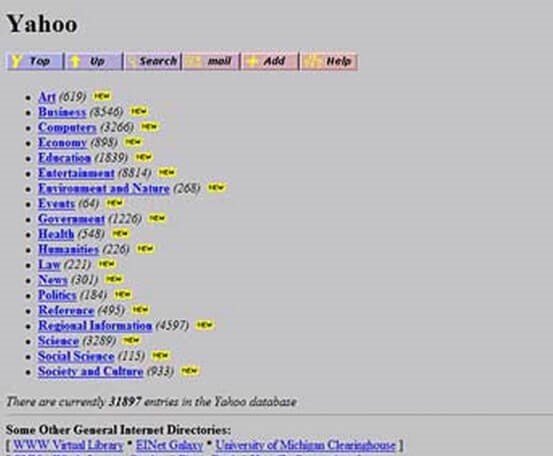Ways to Choose the Best Web Portal for All Your Needs
Ways to Choose the Best Web Portal for All Your Needs
Blog Article

In the current digital landscape, the way we access information has changed significantly. Given a myriad of resources accessible online, choosing the appropriate web portal or web directory can have a significant impact on your ability to navigate the internet. Whether you are searching for specific resources, discovering new interests, or managing a business, understanding these tools will help you make informed decisions and improve your online experience.
Web portals and web directories fulfill distinct purposes, yet they are often misunderstood. A web directory organizes links and resources based on categories, making it easier to find sites relevant to your interests. Conversely, a web portal acts as a gateway to a variety of services and information, often offering personalized features. Understanding these differences is crucial for choosing the appropriate tool to meet your specific needs and streamline your online activities.
Grasping Web Gateways
Web portals are unified platforms that offer individuals with a doorway to a diverse array of information and services. They function as a connection connecting individuals to various assets, such as data repositories, programs, and tools designed to particular needs. Businesses and entities often employ internet portals to streamline processes, improve efficiency, and elevate user experience by merging varied information sources into a single convenient place.
A key of the key features of web portals is their ability to personalize content. Individuals can build profiles that permit the system to deliver personalized information based on their interests and actions. This customization can consist of news updates, product advice, and relevant documents. By responding to individual user needs, internet gateways can substantially enhance engagement and user experience.
Additionally, web gateways often incorporate team-based elements that allow communication and exchanging among users. Features such as discussion boards, social networking connectivity, and document sharing capabilities promote interaction, making the system not just a source of data but also a shared environment. As businesses increasingly adopt digital technologies, understanding the functionalities and benefits of web portals becomes crucial in leveraging digital solutions for improved outcomes.
Assessing Your Needs
As you are choosing between a web directory and a web portal, it is important to assess the distinct demands of your plan. Think about what you hope to accomplish with the site. Web directories are typically created for listing resources and links, making them ideal for displaying businesses, services, or products in an structured manner. If your chief goal is to provide users with convenient access to sorted information, a web directory may be the ideal choice.
On the contrary, if you need a more comprehensive solution that integrates various services and features, a web portal could be a better fit. Web portals often include combined tools, such as user accounts, forums, and tailored content, improving user engagement. Identify whether your users would profit from additional functionalities besides just access to information. Understanding the scope of interactivity you need will direct your decision.
Job Listings on Wonnox Portal
In addition, consider your audience and their wants. Are they looking for a straightforward way to access links and information, or do they require a more dynamic experience? Interacting with your target audience can offer valuable insights into their likes and behaviors. This understanding will not only enable a more effective user experience but also help you choose a platform that corresponds with their needs.
Evaluating Web Portal Choices
When comparing web portals, it is crucial to take into account the specific features each option offers. Some portals excel in content management, allowing users to easily arrange and disseminate information. Some portals may concentrate on community engagement, providing discussion boards and social networking tools to foster user engagement. Identify what functionalities are crucial for your needs to aid narrow down your choices.
Customization is a further important aspect to think about when choosing a web portal. Various portals provide extensive personalization, allowing users to tailor the layout and tools to fit their preferences. This adaptability can enhance the user experience significantly, making it easier to access relevant resources and information. Look for options that allow you to adjust the design and functionality without requiring extensive technical knowledge.
In conclusion, consider the scalability of the web portal. As your needs evolve, the platform should be able to accommodate growth, whether through increased user numbers, additional features, or expanded content. A portal that can scale with you will provide a long-term solution, minimizing the need for future migrations or revisions. Assess how well each portal can adapt to changing requirements before making your decision.
Report this page